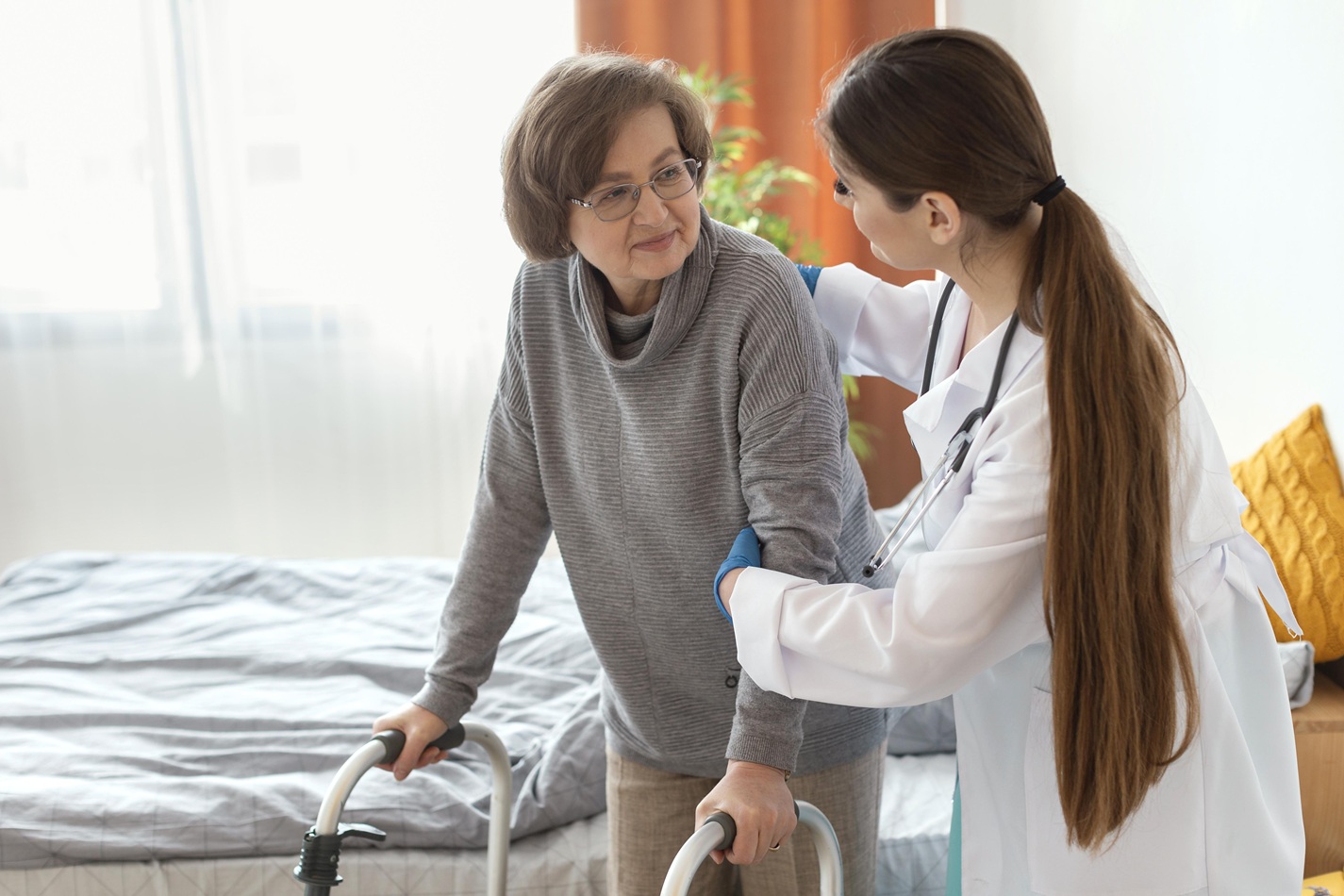As the world becomes increasingly digital, technology plays a vital role in enhancing various aspects of our lives, including healthcare. For seniors in Sydney, 24-hour in-home senior care is significantly improved through the integration of technology. This blog will explore how technology enhances the quality of care provided to seniors, making their lives easier and safer.
Understanding 24-Hour In-Home Senior Care
24-hour in-home senior care refers to a service that provides round-the-clock assistance to seniors in their homes. This type of care is designed to support individuals who may need help with daily activities, medical care, or companionship. At AD Healthcare, we recognize that every senior has unique needs, and our goal is to provide personalized care that enhances their quality of life. Technology plays a crucial role in achieving this goal.
How Technology Enhances 24-Hour In-Home Senior Care
1. Remote Monitoring
One of the most significant advancements in 24-hour in-home senior care is remote monitoring technology. Devices such as wearable health trackers and smart home sensors allow caregivers to monitor seniors’ health and safety in real time. These devices can track vital signs, such as heart rate and blood pressure, and alert caregivers if any abnormalities are detected. This proactive approach helps in managing chronic conditions and ensures timely intervention when necessary.
2. Medication Management
Managing medications can be challenging for seniors, especially those with multiple prescriptions. Technology has made it easier to ensure that medications are taken correctly and on time. Pill dispensers equipped with alarms can remind seniors when it’s time to take their medication. Some systems even send alerts to caregivers if a dose is missed. This level of support is crucial in 24-hour in-home senior care, as it helps prevent medication errors and promotes better health outcomes.
3. Telehealth Services
Telehealth has revolutionized the way seniors access medical care. With 24-hour in-home senior care, telehealth services allow seniors to consult with healthcare professionals from the comfort of their homes. This is particularly beneficial for those with mobility issues or chronic conditions that make traveling difficult. Virtual appointments can save time and reduce stress for both seniors and their families, ensuring that medical needs are met promptly.
4. Emergency Response Systems
In emergencies, every second counts. Technology has made it easier for seniors to get help when they need it most. Personal emergency response systems (PERS) allow seniors to call for assistance with the push of a button. These devices can be worn as pendants or wristbands and connect directly to emergency services or caregivers. This added layer of security is essential in 24-hour in-home senior care, providing peace of mind for both seniors and their families.
5. Smart Home Technology
Smart home devices can significantly enhance the safety and comfort of seniors receiving 24-hour in-home senior care. Smart lighting systems can be programmed to turn on and off automatically, reducing the risk of falls during the night. Smart thermostats can help maintain a comfortable living environment, while security cameras can monitor the home for any unusual activity. These technologies not only improve safety but also promote independence for seniors.
6. Communication Tools
Staying connected with family and friends is vital for seniors’ emotional well-being. Technology has made it easier for seniors to communicate with their loved ones. Video calling platforms, social media, and messaging apps allow seniors to maintain relationships and combat feelings of isolation. Caregivers can also use these tools to keep families updated on their loved one’s condition and care, fostering a collaborative approach to 24-hour in-home senior care.
7. Health and Wellness Apps
There are numerous health and wellness apps designed specifically for seniors. These apps can help track physical activity, monitor nutrition, and even provide guided exercises tailored to seniors’ abilities. By encouraging seniors to stay active and engaged, these apps play a crucial role in enhancing their overall quality of life. Integrating these tools into 24-hour in-home senior care can lead to better health outcomes and increased independence.
8. Training and Support for Caregivers
Technology is not just beneficial for seniors; it also supports caregivers in providing high-quality care. Training programs and resources are available online, allowing caregivers to enhance their skills and stay updated on best practices in 24-hour in-home senior care. Additionally, communication platforms enable caregivers to share information and collaborate effectively, ensuring that seniors receive consistent and coordinated care.
Conclusion
In conclusion, technology plays a vital role in enhancing 24-hour in-home senior care for seniors in Sydney. From remote monitoring and medication management to telehealth services and smart home technology, these advancements improve the quality of care and promote independence for seniors. At AD Healthcare, we are committed to integrating the latest technology into our care services to ensure that our clients receive the best possible support. If you’re considering 24-hour in-home senior care for a loved one, contact us today to learn more about how we can help improve their quality of life through innovative solutions.


